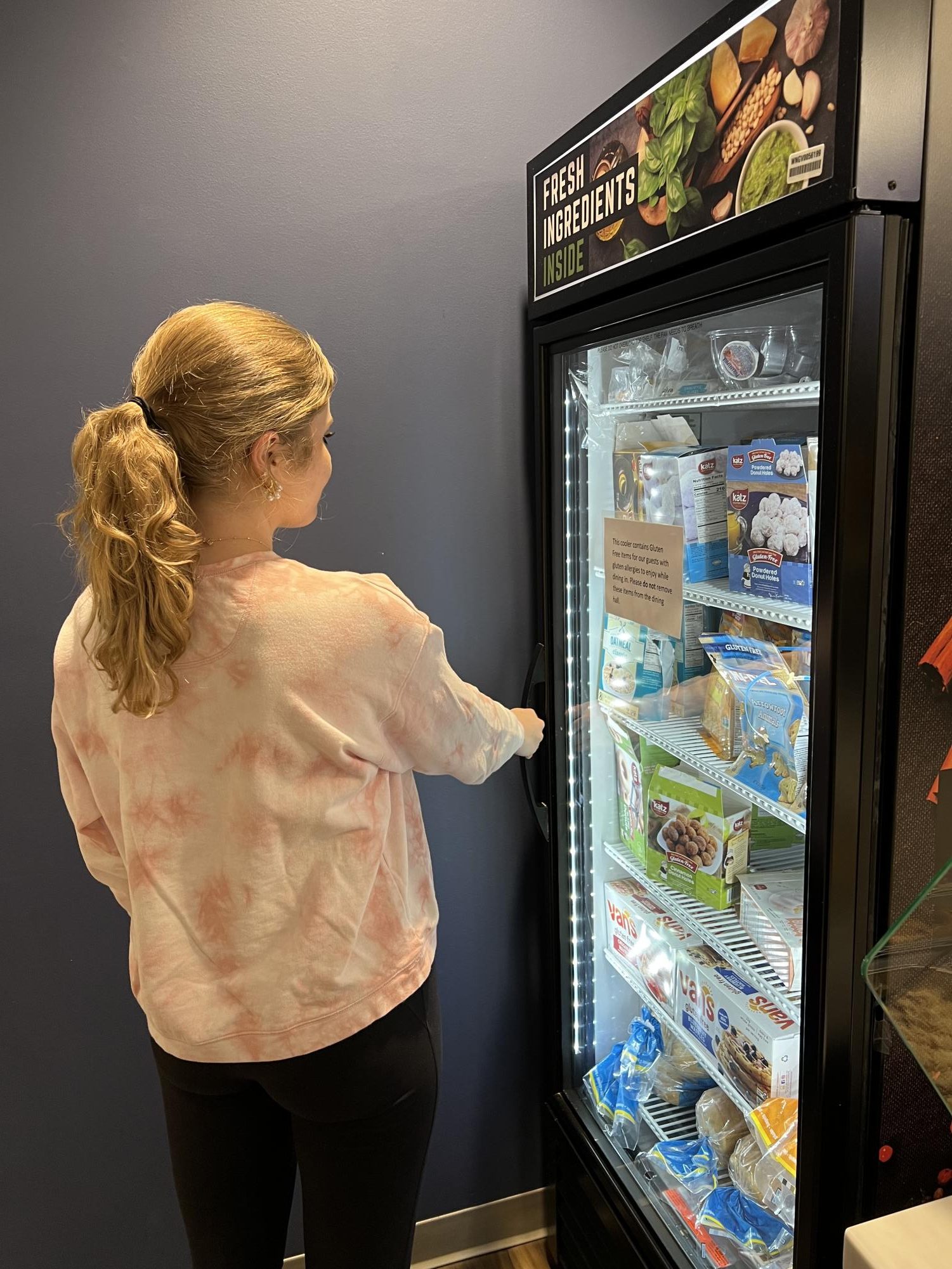Since its recent reconstruction, Burwell Dining Hall has been praised for its diverse array of food options that cater to many different dietary needs. However, for some students, on-campus dining and meal plans can still pose some issues. This is the case for Emma Hedden ‘26 who has Celiac disease and is therefore intolerant of gluten.
Though she has been gluten-free for around four years, Hedden knew that coming to college could put her in an environment where her intolerance may be difficult to accommodate, especially considering that with Celiac, she is sensitive to the cross-contamination of gluten.
Since her dietary needs can be intense, Hedden took advantage of the dietary accommodations available at Wofford, through both the food and housing options she was offered. Despite this, she still believes that some of these accommodations looked much better on paper than in action.
During her freshman year, Hedden lived in the only first-year dorm with access to a kitchen, Richardson Hall, to manage cross-contamination and cook for herself when necessary. Though she recognizes and appreciates the privilege of this accommodation, Hedden said that the kitchen “was often not tended to” and “wasn’t clean.”
Addie Marlett ‘24 agrees that her experience living at Wofford with Celiac has not been easy. Unlike Hedden, Marlett was denied the accommodation for access to Richardson’s kitchen during her freshman year and said that she “made and ate almost every single meal in (her) dorm room” that year.
Both Hedden and Marlett are reluctantly bound to Burwell when solely relying on Wofford’s meal plan, though both admit that it still isn’t a perfect option.
“Although Burwell is not the best for me to eat, it is probably the best option I have on campus,” said Marlett. “They label the food as ‘gluten sensitive’ rather than ‘gluten-free,’ which is often a problem for people with Celiac disease.”
“They have a lot of offerings in the allergy fridge downstairs. However, I’ve seen lately that that fridge isn’t getting restocked,” said Hedden. “It’s supposed to be free of the top 8 allergens, however, it’s being restocked with gluten products which kind of defeats the point. For people using the fridge, it takes away from their trust of AVI and Burwell.”
After dealing with these issues and others concerning the cross-contamination of several spreads around Burwell, Hedden finally reached out to Cherie Tyger who oversees AVI at Wofford, finding her very receptive and willing to make these “easy fixes.”
Marlett said that her experiences in other on-campus dining locations, namely Zach’s, are not as accommodating to her dietary needs.
“I request the workers to change their gloves so they don’t contaminate my gluten-free sandwich with gloves with gluten on them,” Marlett said. “It is usually a fifty-fifty chance that they know what I am talking about.”
Overall, it appears that Marlett and Hedden’s experiences reflect an unintentional ignorance of Wofford and AVI to sometimes demanding dietary needs.
“At Wofford, it was kind of a figure-it-out-yourself kind of deal. Having allergies here is not something that’s advertised as being an option,” Hedden said. “Wofford is good about it if you are intentional about your needs and good at advocating for yourself.”
Both students imply that there could be more awareness on behalf of the employees and systems in place to deal with cross-contamination.
Hedden said that she expects those with AVI to be “better prepared to accommodate people with allergies” because of their specific field of work, but she is generally understanding of the situation.
“I’m in a small minority of people that have food restrictions. It’s not something that’s catered to easily or carefully,” said Hedden. “It’s definitely been put on the back burner on and off campus. It’s not a priority, nor would I expect it to be. (However,) intention and care go a long way.”




